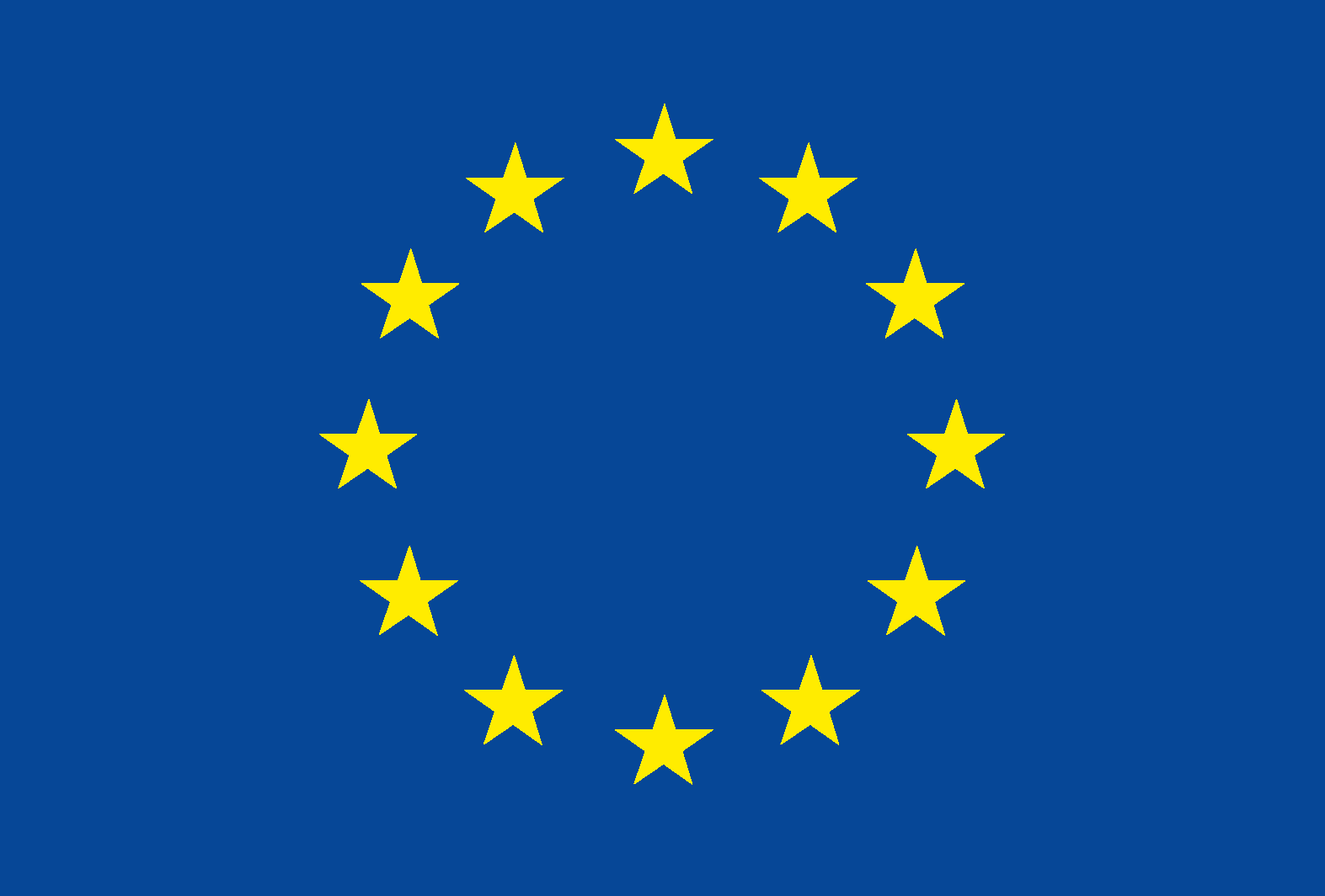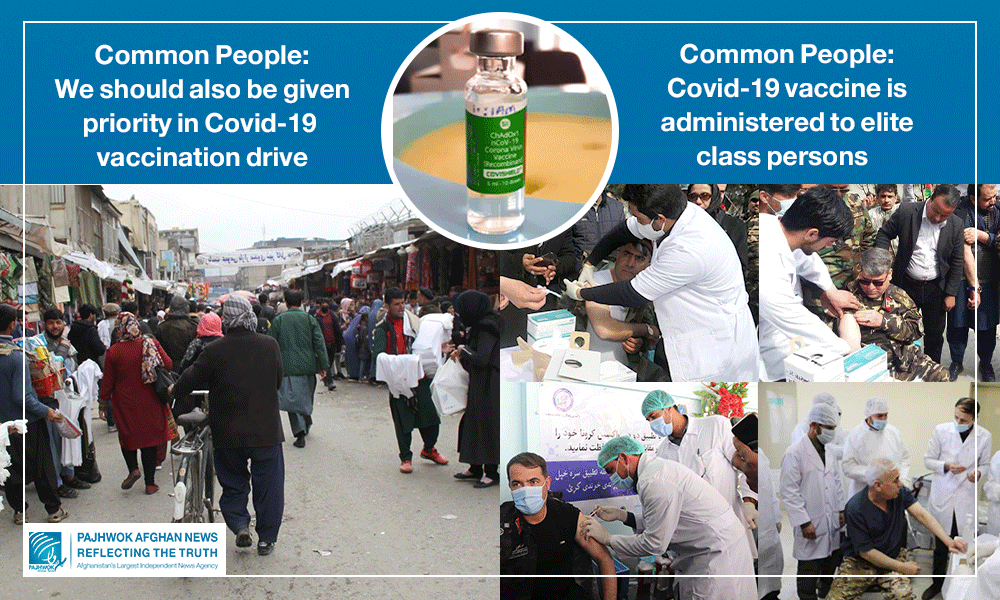KABUL (Pajhwok): Residents of some provinces criticize what they call lack of justice in administration of the coronavirus vaccine, saying mostly government officials get the jab.
But the Ministry of Public Health says the vaccine is being implemented based on a guideline and all eligible people will receive it based on category.
According to reports, about 500,000 doses of Covid-19 vaccine have been provided to Afghanistan from India and another 468,000 doses by the Global Access to (Covax) vaccine.
Implementation of the vaccine began on Feb. 23 in Kabul, and according to information, the MoPH has so far administered the vaccine to 50,000 people in the capital and a number of provinces.
Pajhwok Afghan News recently spoke with a number of citizens in the capital and some provinces, and a majority of those interviewed said that justice had not been observed in implementing the vaccine.
According to them, so far the vaccine has been administered more to the authorities and less attention is paid to those who are at risk.
But MoPH officials say the vaccine will primarily be administered to frontline health personnel, security forces, journalists, schoolteachers, university teachers who are more vulnerable to the virus than others.
Elderly people come first
NafisaYaseeni, 36, resident of Herat province, told Pajhwok: “Whoever has power and backing is vaccinated and those lacking power and influence are ignored.”
According to her, the vaccine should be administered in the first stage to elderly people for being weak.
Her mother, an elder woman, was infected with the virus in the first wave. Nafisa wanted to vaccinate her mother, but health officials told her that the vaccine would be given to everyone based on turn.
Sima Obaidi, a resident of Zaranj city in Nimroz province, criticized the lack of justice in distributing the coronavirus vaccine, saying that priority should be given to those who were old and at risk of dying if they contract the disease.
“Unfortunately, the vaccine is mostly available to officials and their families,” she added.
She said her 75-year-old father visited the health center several times, but he did not receive the vaccine.
Teachers, professors be prioritized
Atiqullah Noorzad, head of the Civil Society Network in Zaranj, said the implementation of the anti-coronavirus vaccine was unfair. He told Pajhwok all government officials in the province got vaccine besides health workers.
The civil society activist added: “We hope that this program will be fair and the vaccine will be applied to all sections of society, especially to teachers and professors in the first stage, because teachers and professors are more vulnerable to this disease.”
Faqir Ahmad, a 40-year-old resident of Herat, criticized what he called unjust distribution of the corona vaccine, saying that priority should be given to those at risk of contracting the virus; but unfortunately that did not happen.
“Like many other things in Afghanistan, justice has not been observed in the implementation of the coronavirus vaccine,. It should be given to teachers who deal with 50 to 60 students in each class,” he added.
Most vulnerable
Some interviewees said that vendors, drivers, butchers and bakers are more susceptible to the disease than others and can infect hundreds of people daily.
“We deal with tens and hundreds of people every day; if we get infected, we can transfer the disease to dozens of other homes,” said Aminullah, a resident of Kabul’s Khairkhan area and a shopkeeper of vegetable.
He called the vaccination drive by MoPH as unfair and said: “In our country, reference and power are important in everything, and the same is required to get the vaccine.”
Nisar Ahmad, a taxi driver in Kabul, told Pajhwok that the vaccine program was being implemented unfairly.
He added that in the first wave of the virus, he contracted the virus and was in critical condition for 20 days, and now he was afraid that he would be infected with the virus again.
He called on MoPH to strictly observe justice in the implementation of the vaccine and to apply the vaccine step by step to all people in different categories (butcher, shopkeeper, teacher, driver, student, etc..”
Farida Amini, a resident of Shiberghan city in Jawzjan province, stressed that the vaccine was unfairly distributed and it should be administered to the general public, especially vendors who deal with hundreds of people every day.
Experts: Corona vaccine politicized
Dr. Baz Mohammad Shirzad, a health specialist, criticized the unfair distribution of the corona vaccine in the country, saying that the vaccine implementation program had become politicized.
He added: “The main deserving people of the vaccine are those suffering from cancer, tuberculosis, heart, chronic respiratory diseases, etc., but they have been completely forgotten.”
Referring to prioritizing security forces, he said that the country’s military was in quarantine and did not need the vaccine.
Dr. Shirzad also called drivers of large passenger vehicles as the main deserving people and that if a bus driver got infected with the virus, all the passengers in his vehicle would get this deadly disease.
“There is no management in the implementation of the vaccine, and its implementation is very slow; if the process continues like this, it will take about five years for all people to be vaccinated against the coronavirus,” he said.
Criticizing the lack of awareness and mentality for applying the corona vaccine, he said that first of all, those who get the vaccine should be fully informed.
Meanwhile, Dr. Hakim Saleh, former director of the Afghan-Japan Hospital, said that the vaccine in some countries was rapidly administrated but the drive faced some problems in in countries like Afghanistan.
Concerned about the lack of vaccine in private health centers, he added that so far the staff of private health centers had not been vaccinated and should be given attention.
One of the vaccinators, who did not want to be named, told Pajhwok that since the beginning of the vaccine implementation in Afghanistan, a number of government employees, security forces and media workers had been vaccinated.
Regarding vaccination of individuals who are at high risk, he said that they may be injected at another stage.
Officials: The vaccine drive underway fairly
MoPH officials in some provinces consider the distribution of coronavirus vaccine as purely technical
Ghulam Dastagir Nazari, a spokesman for the MoPH, told Pajhwok that the implementation of the vaccine around the world was first applied to health workers and the same is being done in Afghanistan.
He said the vaccine implementation was categorized based on three indicators: “According to scientific indicators, people at risk, people at risk who spread the virus in the community and those in crowded places who cannot maintain social distance will get vaccinated.”
He added that based on these three scientific indicators; health workers, security forces and teachers who were unable to maintain social distance were vaccinated, respectively.
He called on those specified in the category to go to health centers and get vaccinated.
According to him, it is supposed to be based on commitment: the “Vaccine Coordination Agency” had pledged about 16 million doses of vaccine; and China will donate 400,000 doses of vaccine to Afghanistan in near future.
MoPH officials had previously said they will work to provide 32 million doses of vaccine to 40 percent of the country’s population through the World Bank, the Asian Development Bank and other health partners.
Covid-19 vaccine drive is according to the plan:
Dr. Nasir Ahmad Hibat, director of public health in Nimroz province, said that in the first phase, a large number of health workers in the province, both public and private, had received the vaccine and that the process was still underway.
According to him, in the second phase, the security personnel will be vaccinated and so far more than 600 police officers and more than 400 National Directorate of Security personnel had been vaccinated
He saidt media workers and those who dealing more with the public also benefited from the vaccine, and education and university staff were scheduled to be vaccinated in the next phase.
Meanwhile, Dr. Abdul GhaffarKhoshival, director of public health in Jawzjan province, told Pajhwok that more than 700 people, including 600 health personnel and 100 security personnel, had been vaccinated in Shiberghan.
He added that due to the lack of interest of some people in getting vaccinated in the city of Shiberghan, officials of the MoPH had ordered the education and higher education institutions to be included in the vaccination implementation process.
Sa/ma
 “This Investigative Report was produced with the financial support of the European Union. Its contents are the sole responsibility of Pajhwok and do not necessarily reflect the views of the European Union.”
“This Investigative Report was produced with the financial support of the European Union. Its contents are the sole responsibility of Pajhwok and do not necessarily reflect the views of the European Union.”








GET IN TOUCH
NEWSLETTER
SUGGEST A STORY
PAJHWOK MOBILE APP